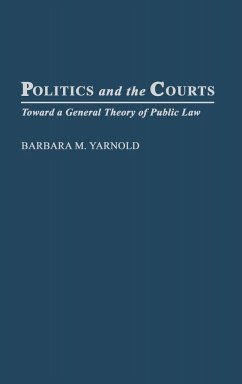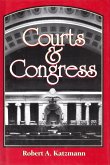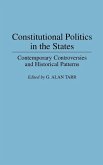In the public law area, there is an understanding that judicial decision making is not always objective, that the courts are not constrained by the law and the facts of the case, and that courts are actually policy makers influenced by extraneous factors that have little to do the legal and factual matters of a case. Through a combination of an integrative review of the relevant literature in the public law area and new case studies researched by the author, Barbara Yarnold argues that the public law area has discarded the traditional view of the judiciary as a passive interpreter of the law who truly weigh the facts of each case. She examines political and environmental variables that have been used to explain judicial outcomes and develops an original general theory of public law explaining under what circumstances political variables impact court decisions, and when region, as an environmental variable, is related to judicial outcomes. The central question in this study is When exactly do the law and the facts count? As Yarnold's analyses of the judicial decision field draw variables from political science, economics, psychology, and criminal justice, among other fields, this work also suggests that the public law area is multidisciplinary in nature. The book concludes with a case study examination of interest groups involved in asylum-related appeals and their role in the Sanctuary Movement. Students and scholars of public administration, law and society, and public law will find Yarnold's integration of research and current literature toward a general theory of public law highly provocative and interesting.
Hinweis: Dieser Artikel kann nur an eine deutsche Lieferadresse ausgeliefert werden.
Hinweis: Dieser Artikel kann nur an eine deutsche Lieferadresse ausgeliefert werden.








